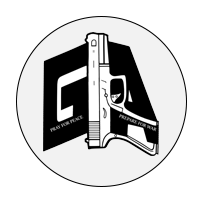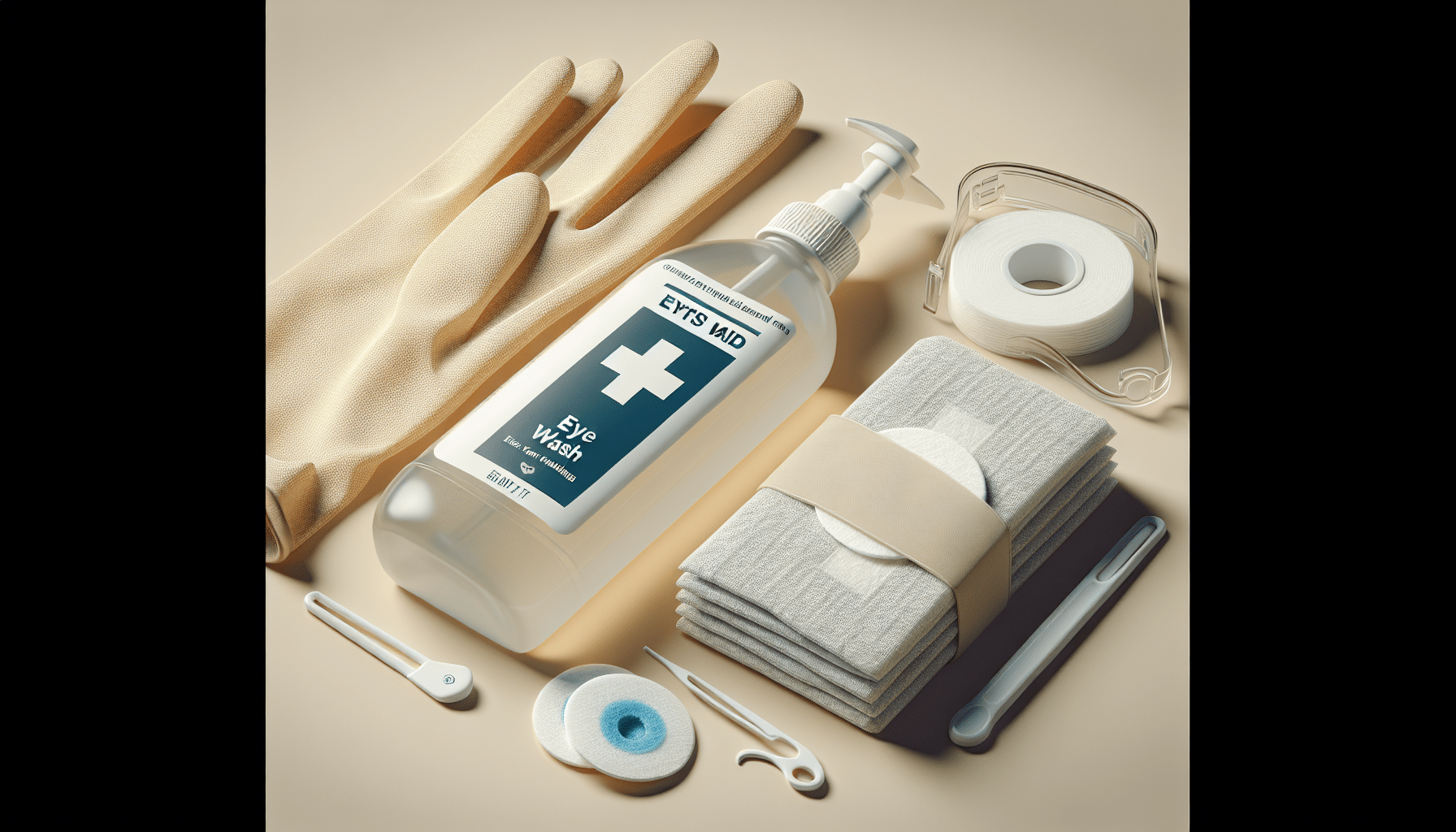Have you ever wondered what to do if someone gets an eye injury?
You might think it’s a rare occurrence, or perhaps something that only happens in dramatic TV shows or movies. But eye injuries happen more often than you might expect, whether it’s from a stray baseball, a mishap in the kitchen, or, of course, an unfortunate accident at the shooting range. Knowing how to respond quickly and effectively can make a world of difference when you’re staring down an eye emergency.

Understanding Eye Injuries
Let’s start with understanding what we’re dealing with here. Eye injuries can range from minor annoyances to serious emergencies. They come in different shapes and sizes, each needing its own special brand of TLC.
Types of Eye Injuries
Eye injuries fall into several categories. Recognizing the type of injury can help you determine the best course of action.
| Type of Injury | Description |
|---|---|
| Foreign Objects | Dust, dirt, or small particles in the eye. |
| Chemical Burns | Exposure to harmful chemicals. |
| Cuts and Punctures | Physical cuts or punctures to the eye or surrounding area. |
| Blows to the Eye | Trauma from impact, e.g., from a punch or ball. |
| Radiation Burns | Overexposure to UV light, as from the sun or welding arcs. |
Immediate First Aid Measures
When it comes to eye injuries, timing is crucial. Knowing what to do—and what not to do—can prevent further damage and could even save someone’s vision.
What To Do for Foreign Objects
Nothing gets the “blinkies” like a tiny piece of something taking an unwanted trip into your eyeball. Here’s how to handle it:
- Don’t Rub Your Eyes: This might sound like common sense, but when your eye feels like it’s hosting a sandstorm, your first instinct might be to rub it. Don’t.
- Flush with Clean Water: Use clean water or saline solution to rinse the eye. This can help wash out any foreign particles.
- Blink Repeatedly: Sometimes blinking rapidly can help dislodge the object.
- Seek Medical Help: If the object doesn’t come out or if the eye remains irritated, it’s time to call in the professionals.
Responding to Chemical Burns
Chemical burns are no joke. Whether it’s from household cleaning agents or something more sinister, quick action is key:
- Flush Immediately: Use copious amounts of clean water to flush the affected eye. Continue flushing for at least 15 minutes.
- Avoid Using Other Solutions: Don’t try to neutralize the chemical with other substances unless instructed by a medical professional.
- Hold Eyelids Open: Make sure the eyelids are kept open to allow for maximum water flow.
- Seek Immediate Medical Attention: Once you’ve flushed the eye thoroughly, get to a healthcare provider as quickly as possible.
Dealing with Cuts and Punctures
Cuts or punctures around the eye area demand delicate handling:
- Avoid Touching or Rubbing: As tempting as it might be to inspect the damage, it’s crucial not to touch the eye.
- Protect the Eye: Cover the eye with a clean, rigid shield, like the bottom of a paper cup. Do not use anything that could press against the eye.
- Seek Emergency Care: This is a medical emergency, so get to a hospital right away.
Handling Blows to the Eye
Blows to the eye can range from a minor black eye to more severe injuries:
- Apply a Cold Compress: Use a cold but not freezing compress to reduce swelling.
- Avoid Pressure: Do not apply pressure directly to the eye.
- Monitor for Symptoms: Look out for blurred vision, blood in the eye, or changes in vision. If these occur, get medical help.
Radiation Burns
If you’ve overdone it on the tanning bed, or sat welding without proper eye protection, you might end up with radiation burns:
- Rest in a Dark Room: This can help alleviate the initial discomfort.
- Use Artificial Tears: Over-the-counter artificial tears can help soothe the eye.
- See a Doctor if Needed: If pain persists or vision is affected, go consult a professional.
Long-Term Care and Precautionary Measures
Of course, the best treatment is prevention. Being proactive about eye safety can spare you the trauma of dealing with injuries in the first place.
Protective Gear
At Green Line Arms, we’re all about preparedness, and that certainly extends to taking care of your eyes. Whether you’re out on the range or hiking through the woods, wearing appropriate eye protection is a must. Here’s what you should consider:
| Activity | Recommended Protection |
|---|---|
| Shooting | ANSI Z87.1-rated shooting glasses |
| Sports | Polycarbonate sports goggles |
| Sun Exposure | UV-blocking sunglasses |
| Work | Safety goggles or face shields |
Regular Eye Check-ups
You’re not likely to forget your biennial dental check-ups, but what about your eyes? Regular eye exams can help spot potential problems before they turn into full-blown emergencies. Plus, it’s nice to hear the optometrist say, “Your vision is 20/20,” just like your hindsight.
Emergency Kits
Having a well-stocked first aid kit is essential, especially if you’re around activities that put your eyes at risk. Here’s a quick rundown of what your kit should include:
- Saline solution or clean water
- Eye cup or small container (for flushing)
- Rigid eye shield (a paper cup will do in a pinch)
- Pain relievers (consult a doctor for recommendations)
- Contact information for local emergency services
When to See a Doctor
Persistent Symptoms
Sometimes, the eye won’t play ball, even after you’ve tried all the home remedies. If you experience persistent symptoms like blurriness, pain, sensitivity to light, or blood in the eye, it’s time to swallow your pride and head to a medical professional.
Changes in Vision
If your vision was sharp as a tack one moment and now you’re struggling to tell an apple from an orange, don’t wait. Sudden changes in vision are a red flag that requires immediate medical attention.

Frequently Asked Questions
Can I Treat All Eye Injuries at Home?
Absolutely not. While some minor injuries like small foreign particles can be managed at home, anything that involves a cut, puncture, chemical exposure, or persistent symptoms should be treated by a healthcare provider.
How Often Should I Replace My Safety Gear?
Safety equipment isn’t immortal. Goggles and glasses can wear out or get scratched, reducing their effectiveness. Generally, you should replace your safety gear every couple of years or sooner if they show any signs of damage.
Can Regular Eyeglasses Protect My Eyes?
Regular eyeglasses provide minimal protection against eye injuries. For better protection, you should use safety goggles or specialized protective eyewear designed for your specific activity.
How Can I Prevent Eye Injuries in Children?
Kids are like curious little explorers, always getting into things they shouldn’t. Ensure that potentially harmful substances are out of their reach, and teach them about the importance of eye safety. And yes, they should wear protective eyewear during sports and other risky activities.
Green Line Arms: Preparing for the Unexpected
While you may think we’re just about guns and ammo, Green Line Arms is committed to broader safety education, including first aid for injuries—eyes included. Our virtual shooting range at 1350 South Blue Angel Pkwy in Pensacola, Florida, is designed not only to give you a great time but also to teach you essential skills for handling emergencies.
Highly trained staff, cutting-edge technology, and a spirit of responsible firearm ownership make Green Line Arms a community cornerstone. Drop by or give us a call at 850-285-0468, and let’s chat about how we can help you prepare for any scenario, eye injuries included.
Conclusion
Ultimately, eyes are both fragile and invaluable. Taking a few moments to learn proper first aid for eye injuries can make a significant difference in the outcome of an unfortunate accident. From knowing how to flush out a foreign object to understanding when it’s time to call in a professional, every bit of knowledge counts.
So next time you find yourself or a buddy in a sticky situation, you’ll be the one with a clear vision of what needs to be done. And remember, when it comes to safeguarding not just your eyes but your entire well-being, Green Line Arms is your trusty wingman.




